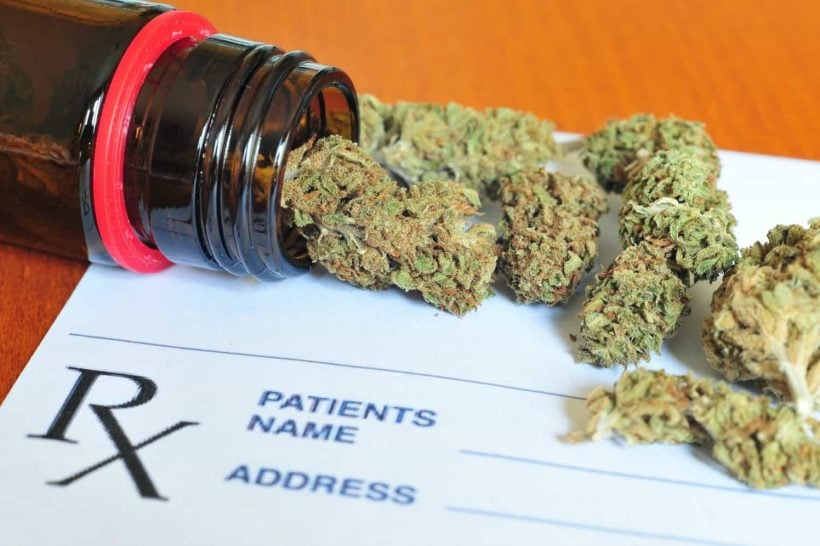Actions to Protect Your Medical Cannabis Card for Ideal Health Perks
Actions to Protect Your Medical Cannabis Card for Ideal Health Perks
Blog Article
The Recovery Power of Medical Marijuana: a Deep Study Its Possible to Treat Various Conditions
In recent years, the conversation around the restorative potential of clinical marijuana has actually acquired considerable traction within the medical neighborhood. The advancing landscape of medical marijuana offers a complicated tapestry of possible advantages that warrant a closer examination, shedding light on a world of treatment possibilities that continue to intrigue professionals and people alike.
Restorative Benefits of Medical Cannabis
In the realm of modern medicine, the healing benefits of medical marijuana have arised as a promising opportunity for treating different health conditions. The energetic compounds in cannabis, called cannabinoids, communicate with the body's endocannabinoid system to create a series of impacts that can be valuable for people. One of the most popular cannabinoids is cannabidiol (CBD), which has acquired focus for its possible anti-inflammatory, analgesic, and anxiolytic homes without the psychedelic effects generally connected with tetrahydrocannabinol (THC)
Medical cannabis has actually revealed certain promise in minimizing chronic pain, spasticity connected with multiple sclerosis, queasiness and throwing up in radiation treatment individuals, and symptoms of particular neurological disorders like epilepsy. Study is also exploring its potential in managing psychological wellness problems such as stress and anxiety, anxiety, and trauma. In addition, clinical marijuana is being examined for its anti-inflammatory properties, which can have effects for problems like joint inflammation and inflammatory bowel illness.
Relieving Persistent Discomfort With Cannabis
Having actually shown effectiveness in attending to a range of wellness problems, clinical cannabis especially shines in its capacity to provide relief for people coming to grips with chronic pain. Chronic pain, defined by its determination and debilitating nature, affects millions worldwide, typically considerably influencing lifestyle. Conventional discomfort monitoring strategies, such as opioids, may include negative negative effects and the danger of dependence, driving several individuals to look for alternative options.
Medical marijuana has actually arised as a promising alternative for chronic pain management due to its analgesic buildings. Research studies have actually revealed that clinical marijuana can efficiently minimize chronic pain linked with conditions like arthritis, fibromyalgia, several sclerosis, and neuropathy.
Handling Anxiousness and Stress And Anxiety
Clinical cannabis provides a viable choice for people looking for relief from stress and anxiety and stress and anxiety due to its prospective calming effects on the body and mind. By possibly influencing the launch of natural chemicals and modulating tension action, clinical cannabis reveals guarantee in offering an all-natural choice for managing these conditions.
Additionally, unlike traditional anti-anxiety medicines that might include undesirable adverse effects or danger of dependence, medical marijuana uses a potentially safer option for individuals looking to reduce anxiety and tension. It is important for individuals thinking about medical marijuana for these functions to seek advice from with a healthcare company educated concerning medical marijuana to guarantee effective and risk-free use.
Marijuana for Neurological Disorders
Research study has actually shown appealing capacity in utilizing marijuana for managing neurological disorders. Neurological disorders include a series of conditions affecting the brain, spine, and nerves, such as epilepsy, several sclerosis, Parkinson's condition, and Alzheimer's illness. Cannabis, with its energetic compounds like THC and CBD, has actually shown neuroprotective, anti-inflammatory, and antioxidant homes that can profit people with these disorders.

While more professional tests are required to fully understand the effectiveness and safety and security of cannabis for neurological problems, initial searchings for are motivating and warrant additional examination into the healing capacity of this plant for enhancing the lives of those influenced by such conditions. - Medical Marijuana Card Clinton MS
Prospective of Cannabis in Cancer Therapy
The broadening horizon of medical marijuana applications reaches the capacity of leveraging its homes in cancer therapy, using a new avenue of exploration in harnessing the therapeutic benefits of this plant for addressing intricate health challenges. Cannabis reveals guarantee in cancer therapy due to its prospective to ease symptoms connected to the illness and its therapy, such as discomfort, queasiness, and anorexia nervosa. Furthermore, cannabinoids, the energetic substances in marijuana, have demonstrated anti-tumor results in preclinical studies, revealing their potential in inhibiting the development of cancer cells.
Moreover, marijuana might aid in handling the negative effects of conventional cancer treatments like chemotherapy, possibly enhancing patients' lifestyle during treatment. While even more research study is needed to totally understand the mechanisms behind marijuana's possible anti-cancer residential properties and like it its efficacy in different kinds of cancers, the initial findings suggest that clinical cannabis might play a valuable role in the future of cancer cells treatment. As the expedition of cannabis in oncology continues, it holds assurance as a complementary approach to traditional cancer cells therapies, offering patients a well-tolerated and possibly reliable alternative in their therapy routines.
Final Thought
Finally, medical cannabis has revealed appealing possibility in dealing with a range of ailments, including chronic pain, anxiety, tension, neurological disorders, and cancer. Its healing go benefits have actually been significantly acknowledged by the clinical neighborhood, with continuous study highlighting its performance in taking care of these conditions. As more research studies are performed, medical cannabis may become a beneficial therapy option for individuals experiencing from these devastating conditions.
In recent years, the discussion around the healing potential of medical marijuana has gained considerable grip within the medical community. The evolving landscape of medical cannabis presents a complicated tapestry of potential benefits that necessitate a closer exam, dropping light on a world of therapy opportunities that proceed to intrigue specialists and patients alike.

Report this page